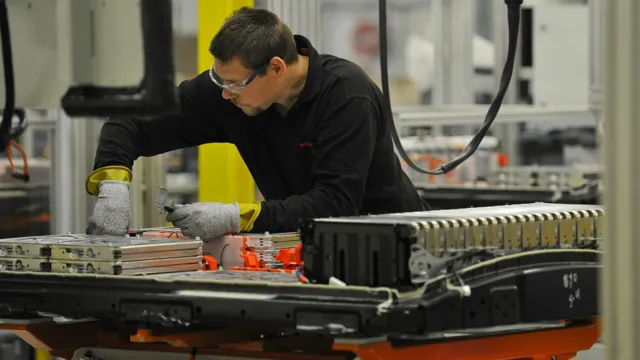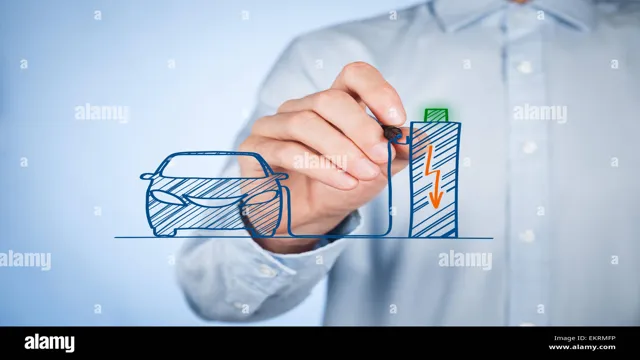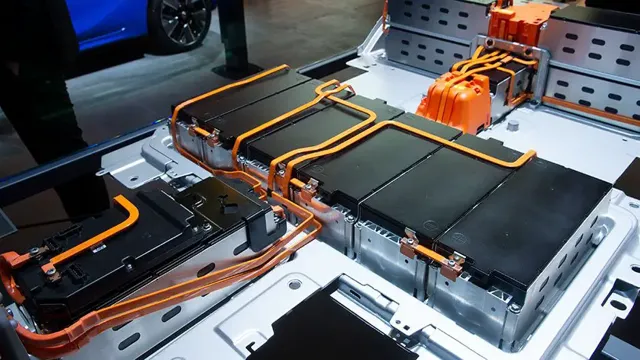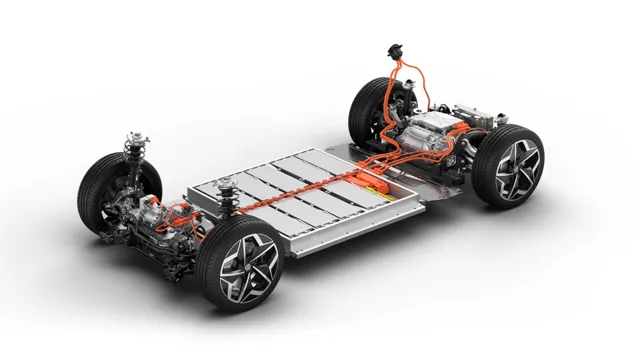Revving Up the Efficiency: Exploring the Fuel Efficiency of Battery Electric Cars
Electric cars are the future of personal transportation. With pressures to reduce carbon emissions, electric vehicles provide a cleaner alternative to conventional cars. Fuel efficiency is one of the main advantages of owning an electric car.
The benefits are multi-fold, including reduced fuel costs, improved driving range, and lower overall environmental impact. In this blog post, we will explore the benefits of electric car fuel efficiency and why it’s important for consumers to consider electric vehicles as a viable option for their transportation needs. Let’s dive in!
Overview of Battery Electric Vehicles (BEVs)
Battery electric vehicles (BEVs) are becoming increasingly popular in today’s world. These cars run solely on electricity, and they offer several benefits over traditional gasoline vehicles. One of the most significant advantages of battery electric cars is their fuel efficiency.
Since they run on electricity, they emit zero emissions and require no fuel. This translates into significant cost savings, especially for people who drive long distances every day. Additionally, BEVs offer a smooth and quiet ride, as they rely on electric motors rather than traditional internal combustion engines.
With advancements in technology, battery electric cars are quickly becoming more accessible and practical for daily use. If you’re looking for a way to reduce your carbon footprint and save money on fuel costs, a battery electric car might be the perfect solution.
What makes BEVs fuel efficient?
Battery Electric Vehicles (BEVs) Battery electric vehicles (BEVs) are designed to be fuel-efficient since they entirely rely on electricity to operate. Unlike traditional cars, BEVs don’t need fossil fuels to run, which reduces their carbon footprint. BEVs have electric motors powered by rechargeable batteries, which produce zero emissions.
Since these vehicles don’t have a gasoline or diesel engine, they don’t require oil changes or exhaust system repairs, making them more cost-effective in the long run. Additionally, BEVs use regenerative braking technology that converts the kinetic energy generated during braking into electricity and stores it in the battery, which extends the vehicle’s range. With the growing concern about climate change and the need to conserve the environment, BEVs are gaining popularity due to their high levels of efficiency and zero-emissions.
Comparing fuel economy of BEVs to gas cars
Battery Electric Vehicles (BEVs) have emerged as a promising alternative to traditional gas cars due to their eco-friendliness and fuel efficiency. BEVs run on electricity, stored in rechargeable batteries, and are powered by electric motors. Unlike traditional gas cars, BEVs do not emit harmful pollutants such as carbon dioxide and nitrogen oxide, making them an environmentally conscious option for the future.
Additionally, BEVs have a significantly higher fuel economy than gas cars, meaning they can travel more miles per unit of energy. This translates to lower costs for the vehicle owner, as the cost of electricity for charging a BEV is lower than the cost of gasoline for a gas car. Furthermore, BEVs require less maintenance due to their simpler design and fewer moving parts, making them more cost-effective in the long run.
In summary, BEVs have numerous advantages over traditional gas cars, including superior fuel efficiency and eco-friendliness.
Factors Affecting BEV Efficiency
Battery electric car fuel efficiency is a topic that is often overlooked by car owners, but it is an important factor to consider when buying a new car. There are several factors that can influence the fuel efficiency of a battery-electric vehicle (BEV). The first factor is the battery size.
A larger battery will allow for more travel miles on a single charge. The second factor is regenerative braking. Vehicles that can capture the energy produced when braking and use it to recharge the battery will have better fuel efficiency.
The third factor is the weight of the car. A lighter car will use less energy to move and will, therefore, have better fuel efficiency. Finally, the efficiency of the motor and drivetrain can also affect the fuel efficiency of a BEV.
Choosing a vehicle that has high efficiency motors and a well-designed drivetrain can result in significant fuel savings. Overall, it’s important to consider these factors when buying a BEV to ensure that you are getting the best fuel efficiency possible.
Battery size and range
Battery size and range are crucial factors affecting the efficiency of battery electric vehicles (BEVs). The size of the battery determines how much energy can be stored and used to power the car, while the range refers to how far the car can travel on a single charge. The larger the battery, the more miles a BEV can travel before needing a recharge.
However, larger batteries also increase the weight of the vehicle, which can negatively impact efficiency. On the other hand, a smaller battery means a shorter range, but a lighter vehicle that requires less energy to move. Additionally, environmental factors such as temperature and driving conditions can also impact the range and efficiency of BEVs.
Overall, finding the optimal balance between battery size and range is essential to maximize the efficiency and performance of BEVs, ultimately leading to a more sustainable transportation future.
Driving habits and terrain
One of the biggest factors affecting the efficiency of battery electric vehicles (BEVs) is driving habits and terrain. Aggressive driving, including speeding, rapid acceleration, and sudden braking, can significantly reduce the range of a BEV. Additionally, uphill driving and driving in extreme temperatures can also have a negative impact on efficiency.
It’s important to note that driving more efficiently not only helps increase the range of a BEV, but it also reduces overall energy consumption and saves money. By practicing smooth driving habits, avoiding hard accelerations, and staying within the speed limit, you can improve the efficiency of your BEV and enjoy a longer driving range. It’s also worth considering the terrain you’ll be driving on when planning your route.
Whenever possible, try to avoid steep hills and choose the flattest route possible, as this will help maximize your BEV’s range and minimize energy consumption. Overall, paying attention to driving habits and terrain can greatly improve the efficiency of your BEV, enhancing your driving experience and helping save money in the long run.
Weather conditions and temperature
When it comes to electric vehicle (EV) efficiency, a number of factors can have a significant impact on how efficient a battery electric vehicle (BEV) operates. One of the most important of these is weather conditions and temperature. The efficiency of a BEV is largely influenced by the temperature of its battery, which can be affected by the outside temperature and the general weather conditions.
In cold weather, for example, a BEV’s battery may not operate as efficiently as it would in moderate temperatures or in warmer weather. This is because the chemical reactions that power the battery slow down in colder temperatures. On the other hand, in extremely hot weather, a BEV’s battery may become too hot, which can also cause it to operate less efficiently or even fail.
Therefore, it’s important to be mindful of weather conditions and temperature when using and charging a BEV. Doing so can help ensure that it operates close to its maximum efficiency, and that you get the most out of your electric vehicle experience.
Maximizing Your BEV’s Fuel Efficiency
Maximizing the fuel efficiency of your battery electric car (BEV) is a crucial aspect of getting the most out of your vehicle. One of the primary ways to improve efficiency is to use your car’s regenerative braking system. Regenerative braking allows your car to recover some of the energy it expends during braking, which would otherwise be wasted.
Another key consideration is to keep your tire pressure at the recommended level, as under-inflated tires can decrease your car’s range and efficiency. Lastly, managing your driving habits can have a significant impact on your BEV’s performance. Driving smoothly and at a constant speed, rather than accelerating and braking aggressively, can help conserve energy and improve your car’s range.
By taking these steps, you can maximize your BEV’s fuel efficiency and enjoy all the benefits it has to offer!
Regular maintenance and tire pressure
As an owner and driver of a battery electric vehicle (BEV), maximizing your fuel efficiency is key to getting the most out of your car. One of the ways to do this is by regularly maintaining your vehicle and ensuring that your tire pressure is always at the recommended level. By doing so, you’ll not only extend the lifespan of your BEV but also save on energy costs.
Proper tire pressure ensures that your car rolls smoothly, minimizing drag, and thus, reducing energy consumption. Additionally, regular maintenance of your BEV, including oil changes, filter replacements, and battery checks, ensures that all parts are working optimally, enabling your vehicle to achieve maximum efficiency. Remember, every little detail counts when it comes to fuel efficiency, so always keep your BEV’s maintenance schedule in check to save money and energy.
Using regenerative braking and eco mode
If you’re looking to maximize the fuel efficiency of your battery electric vehicle, there are two key features you’ll want to take advantage of: regenerative braking and eco mode. Regenerative braking allows your car to recover energy that would otherwise be lost during braking and use it to recharge your battery. This means you’ll be able to extend your electric range and reduce the need for charging.
Eco mode, on the other hand, adjusts the car’s power output and throttle response to conserve energy and improve efficiency. While it may mean sacrificing some acceleration and top speed, the savings in fuel efficiency are worth it. By combining these features with good driving habits, such as avoiding aggressive acceleration and driving at a consistent speed, you can make the most out of your BEV’s battery capacity and get the most miles out of every charge.
Conclusion: BEVs as a Sustainable Transportation Option
In the world of battery electric car fuel efficiency, the old adage holds true: bigger isn’t always better. While a larger battery may provide a longer driving range, it also requires more energy to charge and ultimately reduces overall efficiency. It’s all about finding that sweet spot between power and practicality.
So, if you’re looking to go green and save some green at the pump, it’s time to think about downsizing and choosing a more efficient electric car.”
FAQs
What is a battery electric car?
A battery electric car is a vehicle that is powered entirely by electricity from rechargeable batteries.
How does the fuel efficiency of a battery electric car compare to a traditional gasoline car?
Battery electric cars are much more fuel efficient than traditional gasoline cars because they convert nearly 100% of their energy into motion, while gasoline cars waste energy through heat and friction.
How far can a battery electric car travel on a single charge?
The range of a battery electric car varies depending on the make and model, but most can travel between 100 and 300 miles on a single charge.
What are some advantages of battery electric cars?
Battery electric cars offer numerous advantages, including lower fuel costs, reduced emissions, quieter operation, and improved energy efficiency. They also require less maintenance than gasoline cars because they have fewer moving parts.





